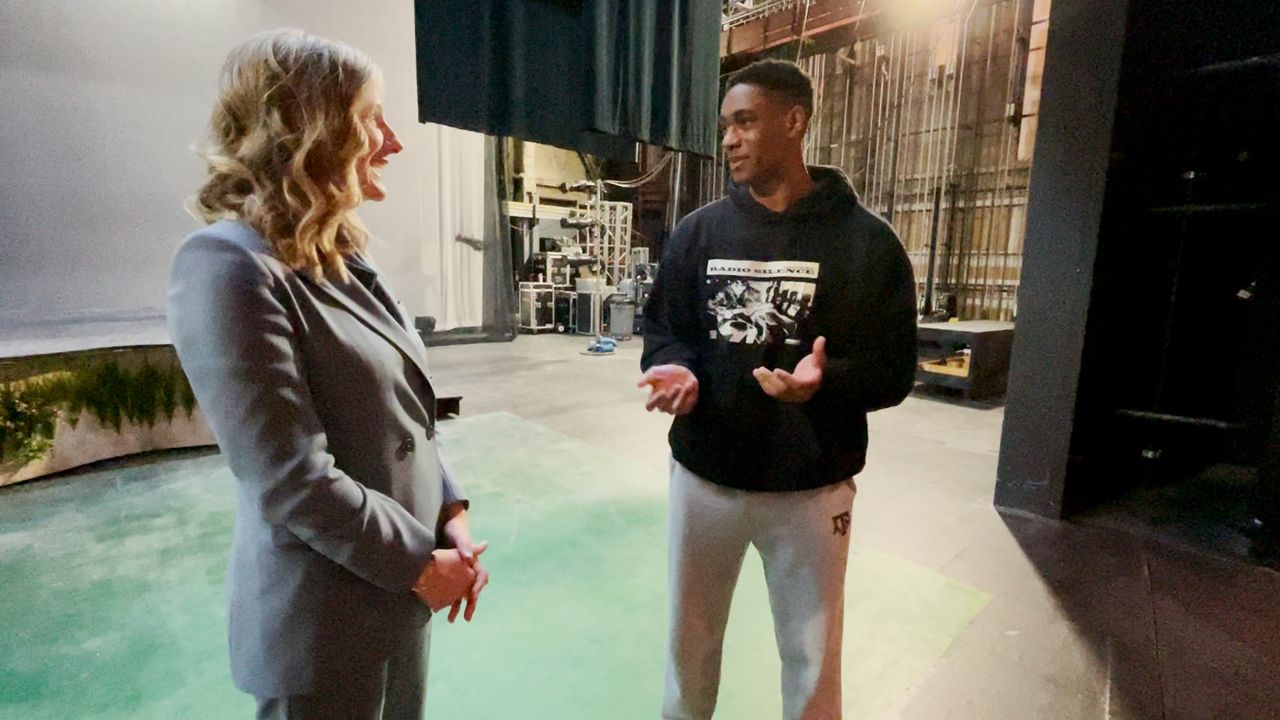Walking around campus, Monica Caris and Riley McGuire are not getting any extra attention, but the two University of Southern California graduate students are helping to make others safer.
What You Need To Know
- Two USC graduate students put together an autism training session for the Department of Public Safety on campus
- They say there are many people on the autism spectrum who exhibit behaviors that have been misinterpreted as being drunk or high
- The chief was so impressed, he made it mandatory for the entire department
- The training was offered virtually this past year due to COVID-19, but the hope is to hold it annually in person
They recently developed an autism training for the Department of Public Safety, or DPS, on campus.
"It was an online Zoom training. It lasted about an hour and we went through kind of what autism is, some of the common terminology used around it, [and] the variety of symptoms that people diagnosed experience," McGuire said.
Part of a class project, the idea was born from the actions that led to the death of Elijah McClain, a 23-year-old Black man who was stopped by police in Colorado while walking home from a convenience store.
"He was exhibiting some behaviors that were possibly characteristic of autism but again, we don't know if he was. They were misinterpreted and that led to his death. I think for me that was a really big wake up call," Caris said.
Caris, who is on the autism spectrum, said many with the diagnosis are nonverbal and might not be able to respond or process the commands they're being given, in addition to other behaviors.
"Some people with autism have a different gait in their walking and sometimes that can get misinterpreted as someone being drunk or high," Caris said.
Department of Public Safety Assistant Chief Alma Burke grew up with a brother who had autism, and she had always heard children with autism did not make eye contact.
"On this day, he kept staring at me and he made eye contact, so it was really powerful," she said, holding up a picture of her brother, Gerardo.
He died a couple of years ago, shortly after she started working at USC. When she heard about the proposed training, she could not believe the timing.
"This is real? It can't be this quick that this could happen because I've been wanting to do a project like this for a while," she said.
Caris and McGuire could not believe the response.
"I expected maybe a little hesitation of, 'Who are you coming in here telling us how to do our job? What do you know about being a police officer,' which is little to nothing," McGuire said.
"I did not even ask them, 'Can I see what you're planning to train?' I just said, 'You're the experts. Put it together,' DPS Chief John Thomas said.
Instead, Thomas made the training session mandatory for the entire department, including himself, despite his nearly 40 years in law enforcement.
"It was probably some of the most dynamic and important training I ever received," Thomas said.
He wishes he knew it sooner. He said the training was truly transformative, and there needs to be even more.
"I'm pretty sure I came across some individuals that were on the spectrum and I was not equipped to even understand," Thomas said. "The way I spoke to them or the fact that I had the lights still going in the background while I'm engaging while there's a lot of people trying to communicate with them at the same time. I did not know what I know now."
"I think we often feel like we don't have the expertise or knowledge to really make a difference but they were so welcoming and encouraging. It made us feel like we were doing really mattered," McGuire said.
Let Inside the Issues know your thoughts and watch at 8 and 11 p.m. Monday through Friday on Spectrum News 1.











